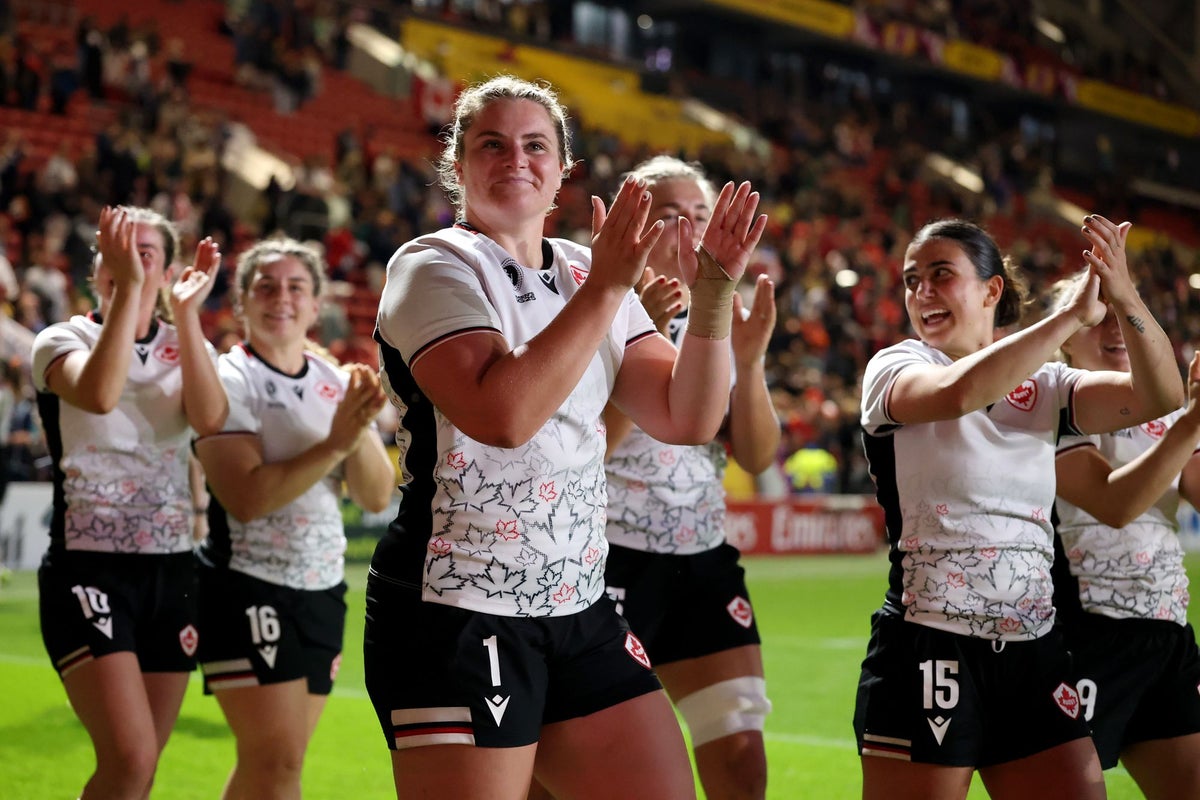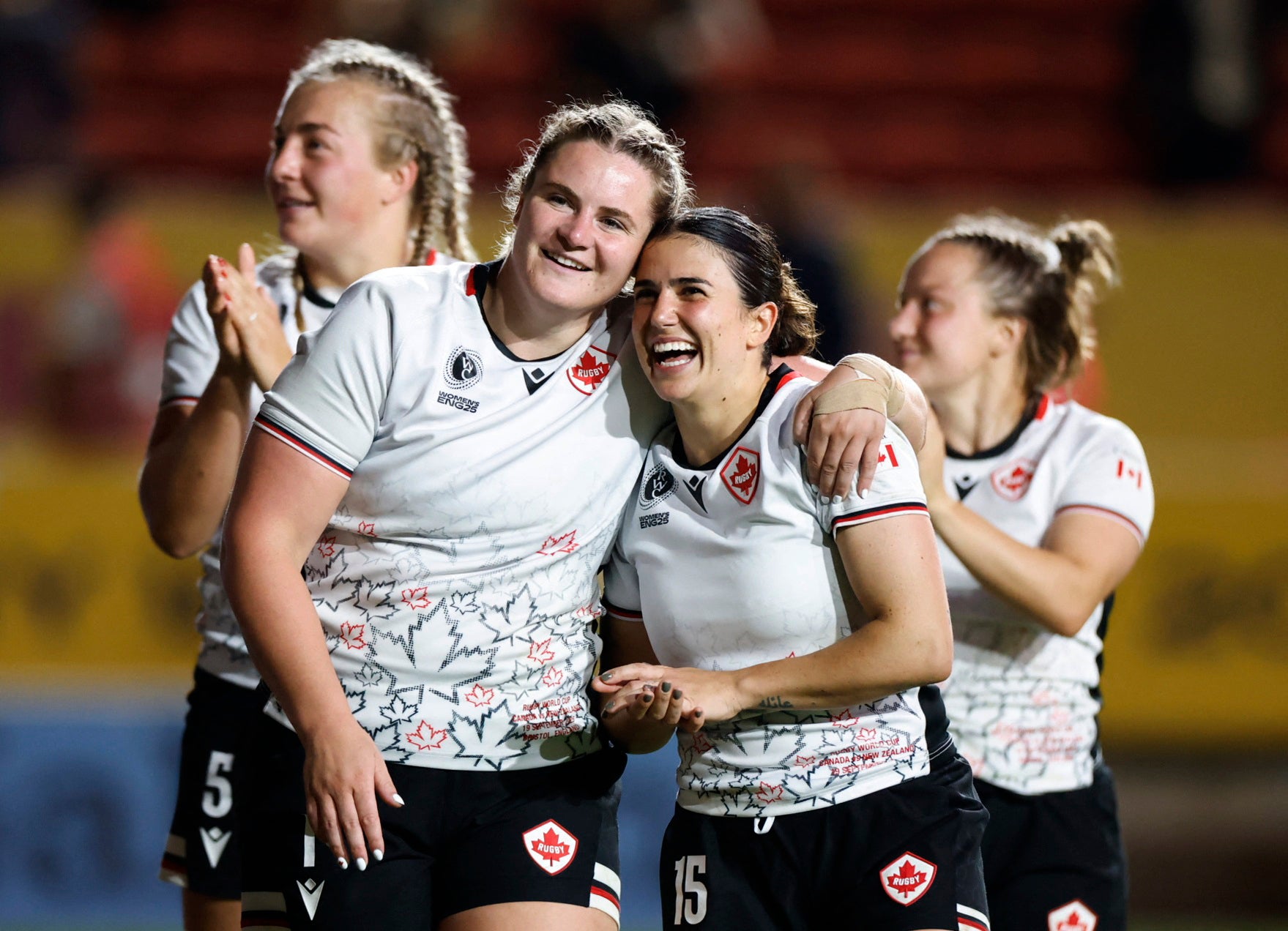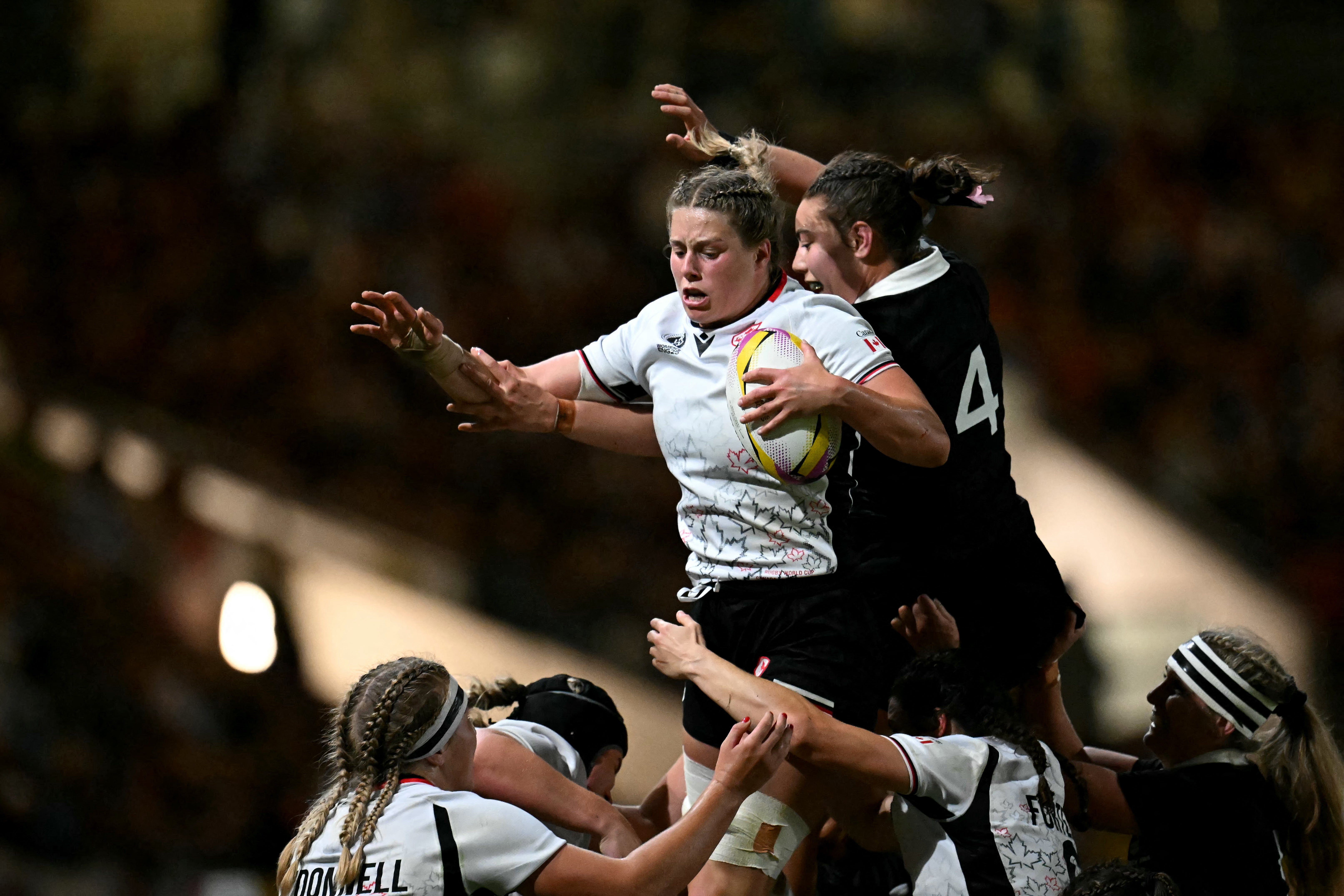
The Red Roses’ run to the World Cup final will naturally bring plenty of attention on how the Rugby Football Union (RFU) have resourced the programme – but England’s investment in women’s rugby has helped their opponents, too. Canada’s place in the tournament decider comes on the back of many important qualities, from the clever leadership of head coach Kevin Rouet to a tightly-knit squad bound by challenging circumstances, yet as crucial as any factor has been the playing opportunities presented to them by Premiership Women’s Rugby (PWR).
Commonly considered the world’s best domestic league by a distance, Canada are far from alone in benefitting from PWR but the manner in which Rouet, his staff and his squad have weaponised the chances on offer is notable. With no regular, high-level playing opportunities on offer back home, most of the Canadian squad have had to look overseas to obtain the consistency of fixtures that is vital to driving standards.
“Honestly, it has been so important,” full-back Julia Schell, who has re-signed with Trailfinders after an impressive first season in Ealing, explains. “We are so grateful that they have welcomed us in. We don’t have a league like that in Canada, and so much of our success has come from being able to play year-round against quality opposition and with quality coaches. It’s honestly amazing – it kind of does feel like a home tournament for some of us because we are able to see so many friends all the time.”

A look down the Canada squad list says plenty. While a few players, like outstanding Stade Bordelais scrum half Justine Pelletier, ply their club trade in France, a large chunk of Rouet’s are PWR-based. Tighthead DaLeaka Menin has been a feared foe for many an England front rower with Loughborough and Exeter; the Canadian contingent at Saracens next season numbers nine, with McKinley Hunt’s conversion into a prop aided by close collaboration between club and country. Given the scale of the diaspora, and sheer size of Canada, camps have been held in Europe regularly in the past to enable more of Rouet’s squad to get together.
About two-thirds of the Canada squad have some form of PWR experience, with a broad spread of clubs represented – from Claire Gallagher at Leicester to Gillian Boag at Gloucester-Hartpury – means Rouet has inside intel on almost every player in England’s squad. The 1994 World Cup winner, and former Trailfinders head coach, Giselle Mather has compared it to a cuckoo laying its eggs in another species’ nest; while Rouet’s intentions were perhaps not as nefarious as the parasitic brooding birds, it could be significant.
“If there is any team we know the best, it is England,” Schell adds. “We have friends on that team, we play with and against them week-in, week-out. But they’ll also know lots about us. It’s going to be a clash for the ages.”
Internally, the number of foreign internationals plying their trade in PWR has been a matter of debate. Once under total RFU control, there were some within the English game who felt it was not the league’s role to prop up other nations who had not developed their own domestic structures. A couple of seasons ago, rules on the number of English qualified players (EQPs) within the league were tightened, with Leicester and Sale given five-point deductions for failing to average a minimum of 13 players in their matchday 23 across the 2023/24 season. Others had to rotate to meet the criteria; former Exeter coach Susie Appleby, whose cosmopolitan Chiefs had been a wonderful story in the league’s growth, was one of a few to question

But there are others within the sport who recognise the value that recruiting from elsewhere can provide. Iron sharpens iron, as the proverb goes, and the serious competition for places and position both within clubs and PWR as a whole has been key in developing the options at John Mitchell’s disposal.
Besides, one cannot say that a broader range of nationalities has not enriched the league. It is not just those from traditional rugby strongholds benefitting: Dutch lock Linde van der Velden has been a key leader at Sandy Park, while Belgium international Ella Amory has founded a recruitment agency designed to democratise access to opportunities in women’s rugby based on her own experiences.
For the final, Canada might just have an extra ace up their sleeve. There would have been a degree of consternation from some at the RFU when the name of Alex Austerberry popped up on Rouet’s coaching staff for this tournament. Still head coach at Saracens, Austerberry is overseeing Canada’s defence at this World Cup having initially joined on a short-term basis at the start of the Pacific Four Series.
It is not just current and former Saracens players within the Red Roses squad with which the two-time title-winning head coach is familiar, but plenty more from his work within the English pathway structure. His impact was clear in the intelligent defensive performance against the Black Ferns that epitomised the buy-in evident within the squad.

“I’m a really big fan of Alex,” says star Canadian lock Sophie de Goede, now in a second stint at Saracens. “He’s been a great addition to our team.
“I’m obviously familiar with him from Sarries and know him more in a head coach role there, but I think he’s been really good as a defensive coach. You can see his specialty around the breakdown and decision-making really come out. It’s been great to see him in a different role.”

Clearly Canada would prefer their own domestic league in which to thrive – but the benefits of PWR to the side are clear. “We really appreciate the PWR in terms of getting quality competition every weekend,” De Goede stresses. “It’s a great league, I really enjoy playing in it. I would love to have a home league, but there are advantages to being spread across the world.”







